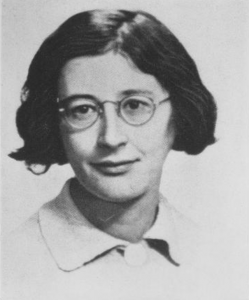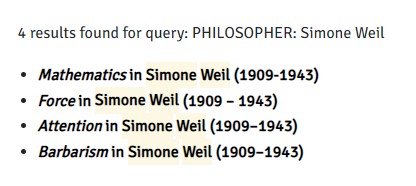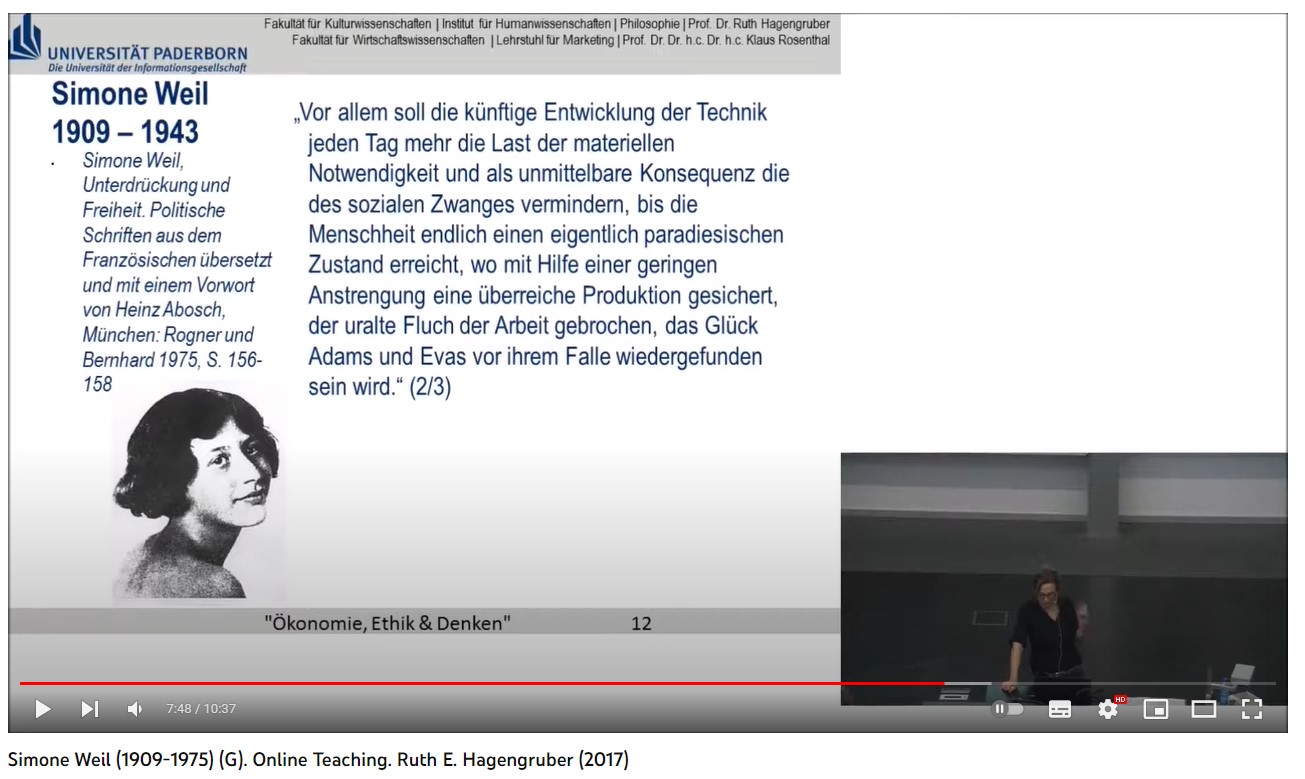 Simone Weil understands mathematics to be expressive both of relationships between ordinary objects and of higher truths:
Simone Weil understands mathematics to be expressive both of relationships between ordinary objects and of higher truths:
“In a general way, and in the widest sense, mathematics, including under this name all rigorous and pure theoretical study of necessary relationships, constitutes at once the unique knowledge of the material universe wherein we exist and the clearest reflection of divine truths. […] It is this same mathematics which is first, before all, a sort of mystical poem composed by God himself.” (Weil 1998, 192-193)
One of the dangers of modern mathematics is that it, similar to money, introduces a means to quantify the relationships between real things, therefore abstracting from them and making us loose sight of the concrete and the divine simultaneously.
We have four ECC articles on Weils’s ideas:
If you are interested in Weil research, find Scholars from our New Voices network.
You may also visit the entry of Simone Weil in our Directory of Women Philosophers.
References
Weil, Simone (1998) “The Pythagorean Doctrine.”, in: Intimations of Christianity among the Ancient Greeks, London, New York: Routledge, 151-201.
You cannot copy content of this page










